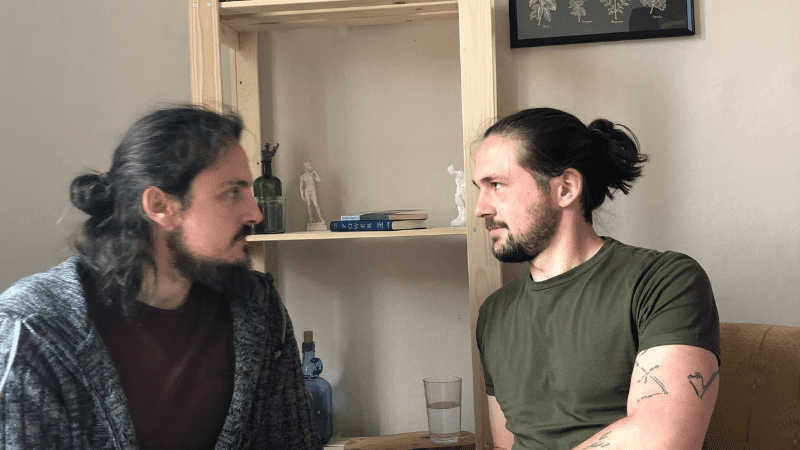How our communication shapes the future
The fundamental weakness of society, our inability to engage in dialogue with understanding, prevents humanity from working together constructively. This phenomenon is wonderfully observable on social media in the comment columns. When confronted with statements that do not correspond to our convictions, we resort to confrontational responses in almost all cases. Instead of seeking dialogue and really trying to come to an understanding, we react aggressively.
But it is also exciting that we often react aggressively when someone has written something ignorant in our own opinion. The possibility that the other person may not have the same knowledge in this area as we do, or actually commented out of curiosity, is rarely considered.
But and even if the author deliberately wanted to spread negative sentiment or a truly unsubstantiated or even reprehensible opinion: how promising is it to go on a confrontational course?
Have we had experiences in which the other had convinced and thus led to success? Probably rather not.
But then why do we act this way? And what should we do instead?
Understand our reactions and strive for constructive dialogue
The answer to why we often want to assert our opinions aggressively (especially online) lies in a combination of cognitive and emotional factors that influence our behavior. By recognizing these tendencies and choosing alternative approaches, we can pave the way for constructive dialogue.
1. emotional triggers and confirmation bias:
When we are confronted with opinions that challenge our beliefs, it often triggers an emotional response. Research suggests that our brains are wired to protect our beliefs and maintain a sense of identity (Kahan et al., 2011). We therefore seek information that confirms our existing beliefs and lets us ignore or dismiss contradictory evidence. Therefore, our aggressive response may be an attempt to protect our worldview rather than engage in thoughtful discussion.
2. lack of empathy and perspective taking:
In online interactions, the lack of face-to-face communication and nonverbal cues can reduce empathy and understanding. We may not consider that the other person may not know enough in a particular area or may simply be curious. Empathy and perspective taking play an important role in fostering constructive dialogue. By acknowledging possible gaps in knowledge and approaching discussions with empathy, we create an environment that promotes understanding rather than confrontation (Galinsky et al., 2008).
3. escalation and group dynamics:
Online discussions often involve group dynamics that can reinforce confrontational responses. Social identity theory states that we tend to identify with certain groups and derive a sense of belonging from them (Tajfel & Turner, 1986). When our group's beliefs are challenged, we may feel a strong urge to defend them, leading to confrontational behavior. In addition, the anonymity and distance provided by the online environment may encourage escalation as people feel less accountable for their words and actions.
On the way to a constructive dialogue
To overcome society's weakness in conducting dialogues, we need to change our approach and adopt strategies that promote productive discussions. Here are some suggestions:
- Practice self-reflection:
Recognize your own biases and emotional triggers. By becoming aware of your own tendencies, you can choose to approach discussions more openly and seek understanding rather than engage in - or start - confrontation. - Practice active listening:
Listen actively, both online and offline. Allow the other person to express their opinion without interrupting, and make a genuine effort to understand their perspective. This shows respect and creates a basis for constructive dialogue. - Ask clarifying questions:
Instead of immediately responding with aggression, pause briefly and then ask thoughtful questions to clarify your counterpart's point of view. This approach not only helps you better understand your point of view, but also encourages the other person to think about their own beliefs and consider alternative points of view. Online, this is frankly more difficult because the flow of conversation is not the same as in face-to-face conversations, but primarily there are no questions in comment columns because it has simply become a habit to stubbornly make your statement and not increase your understanding about the other person by asking clarifying questions. - Give constructive answers:
When confronted with ignorance or negative feelings, respond as kindly as possible and with accurate information. Clarify without belittling, and offer sources or studies that support your point. This approach promotes learning and can lead to more fruitful discussions. - Find common ground:
Look for areas where you agree with the other person or share common values. Finding common ground can help create a basis for constructive dialogue and bridge the gap between different perspectives. Based on shared principles, solutions can be found that benefit both parties.
Annotation: Some of these tips are not particularly helpful for loose exchanges with strangers under any post. In such situations, it is recommended to simply pause for a moment and assume the best possible in the other person.
Interim summary
Society's fundamental weakness in engaging in constructive dialogues can impede its progress and unity. By understanding the emotional and cognitive factors that contribute to our confrontational reactions, we can take steps to overcome them. Empathy, active listening, and asking thoughtful questions are important to promote understanding and productive discussions. If we can replace aggression with respect, openness, and a genuine desire for understanding, we can bridge social divides and work toward a more harmonious coexistence.
Sources
Galinsky, A. D., Maddux, W. W., Gilin, D., & White, J. B. (2008). Why it pays to get inside your opponent's head: The differential effects of perspective taking and empathy in negotiations. Psychological Science, 19(4), 378-384.
Kahan, D. M., Jenkins-Smith, H., & Braman, D. (2011). Cultural perceptions of scientific consensus. Journal of Risk Research, 14(2), 147-174.
Tajfel, H., & Turner, J. C. (1986). The social identity theory of intergroup behavior. In S. Worchel & L. W. Austin (Eds.), Psychology of intergroup relations (pp. 7-24). Chicago, IL: Nelson-Hall.
The dialogues we could have and the world they would create
So if we learn to step back from our aggressive approaches to communication, we have the potential to create a world full of possibilities. Imagine for a moment a society where dialogue transcends boundaries and fosters deep understanding and connection between people. I know very well that this sounds utopian and will probably never be so to the full extent, but this thought shows the potential of what we could achieve - if only we start changing our habits.
Of course there are other things, like poverty and hunger, war and hatred, which are enormously problematic, but we will probably not be able to master these Herculean tasks if we cannot muster these comparably small but just basic things, like empathy and understanding.
In almost every philosophical tradition we can find the idea of inner peace and harmony. The Stoic philosopher Epictetus once said:
"We have two ears and one mouth so we can listen twice as much as we speak."
Epictetus
By embracing this wisdom and practicing the art of attentive dialogue, we create the very space in which different perspectives can coexist and flourish. Philosophical principles, for example, rule maize reminds us of the importance of not holding back and making interactions harmonious.
By letting go of our aggressive tendencies and adopting a more compassionate and empathetic attitude, we pave the way for meaningful relationships, personal growth, and the collective progress of society.
Lao Tzu once summarized this as follows:
"Kindness in words creates trust. Kindness in thought creates depth. Kindness in giving creates love."
If we embrace these principles and choose dialogue over confrontation, we can create a world where mutual understanding and cooperation flourish and a better future is possible for all.
But this gentle approach also makes sense for us individually. Professional negotiators never try to get what they want by confrontation. Instead, they use techniques such as active listening, empathy, and finding common ground to achieve mutually beneficial outcomes. When we take a similar approach in our daily interactions, we not only increase our chances of resolving conflicts amicably, but we also foster healthier relationships.
When we refrain from aggressive approaches and prefer dialogue to confrontation, we create an atmosphere of respect and understanding.
You'll also feel better about yourself and others. When we engage in constructive dialogue, we can maintain our integrity, uphold our values, and cultivate a sense of inner peace. By treating others with empathy and kindness, we promote a positive self-image and contribute to a more harmonious social environment. You see, it's worth working toward this positive cycle of mutual respect and understanding. For and ourselves, people close to us, strangers and society as a whole.







